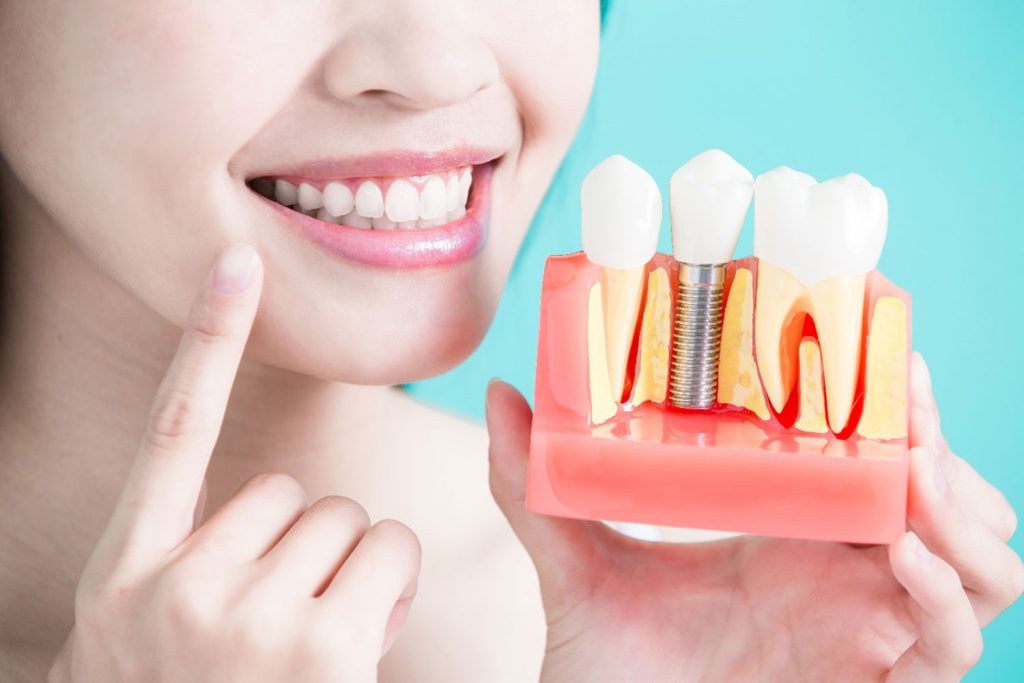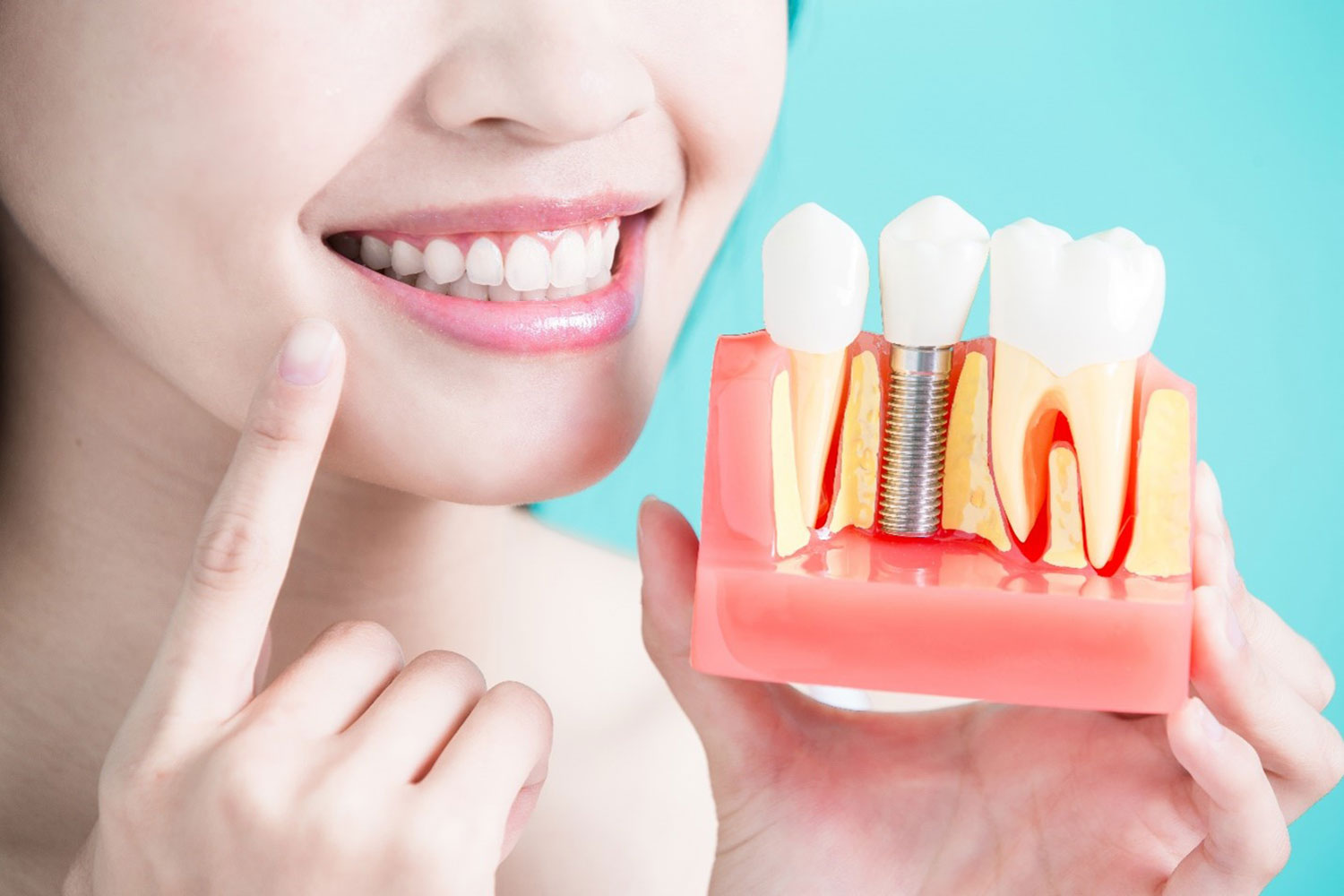Introduction
Dental implants not only restore the aesthetics of a smile but also improve functionality and oral health. However, successful dental implant healing and integration into the bone rely on various factors, and one often underestimated element is nutrition. Now, we’ll explore the crucial role of nutrition in the successful healing of dental implants.
The Dental Implant Healing Process

Dental implant healing typically occurs in several stages:
- After the implant surgery, the first stage involves the formation of new bone around the new implant. This process, called osseointegration, usually takes several months.
- The gums need to heal properly around the implant site to prevent infection and maintain the implant’s stability.
- Once the implant has fully fixated into the jawbone and the gum tissue has healed, the final prosthetic tooth or teeth are attached to the implant.
Nutrition plays a significant role in each of these stages, as it affects the body’s ability to heal, build new bone, and maintain the health of soft tissues.
The Importance of Nutrition in Dental Implant Healing
Nutrition is signficant for the body’s overall health, but it becomes especially critical during the healing process after dental implant surgery. Proper nutrition can significantly impact the success and speed of the healing process. We have given some key ways in which nutrition affects dental implant healing:
1. Bone Health:
Dental implants rely on the fixation of the implant into the jawbone. Bone health is soul for this process, and certain nutrients play a crucial role. Calcium, vit D, and phosphorus are essential for bone formation and maintenance. Without these nutrients, the bone may not heal and integrate around the implant as effectively, potentially leading to implant failure.
2. Collagen Production:
Collagen is a protein that is vital for wound healing, including the healing of gum tissue around the implant. Vitamin C is essential for collagen production.
3. Inflammatory Response:
Omega-3 fatty acids, found in fish and certain nuts, have anti-inflammatory properties that can help regulate the body’s inflammatory response and promote healing during the dental implant.
4. Immune System Support:
Proper nutrition, including a balanced intake of vitamins and minerals, helps bolster the immune system, ensuring it can fend off potential threats during healing.
5. Blood Flow and Oxygen Supply:
Good nutrition also supports optimal blood flow and oxygen supply to the healing tissues. Iron, for example, is essential for carrying oxygen in the blood.
6. Gum Tissue Health:
Nutrients such as vitamin A and zinc play a role in gum tissue health and maintenance.
Nutritional Guidelines for Dental Implant Healing
To promote successful dental implant healing, patients should follow a balanced and nutritious diet. Here are some nutritional guidelines to consider:
- Protein is essential for tissue repair and healing. Include lean meats, fish, poultry, beans, and dairy products in your diet.
- Calcium and Vitamin Dare crucial for your bone health. Incorporate dairy products, leafy greens, and fortified foods into your diet. Sunlight exposure is an excellent source of vitamin D.
- Ensure you consume enough vitamin C through fruits and vegetables like oranges, strawberries, and broccoli to support collagen production and gum tissue healing.
- Include fatty fish like salmon and mackerel, flaxseeds, and walnuts to provide anti-inflammatory support.
- Iron-rich foods like red meats, beans, and fortified cereals can help maintain healthy oxygen transport in the blood.
- A well-rounded diet with a variety of fruits and vegetables is necessary for overall health and healing.
Conclusion
Dental implant healing is a complex process that requires the body to regenerate bone, heal gum tissue, and integrate the implant into the jaw. Nutrition is a fundamental factor in this process. Without proper nutrients, the body’s ability to heal and support the implant can be compromised. To ensure the success of dental implant healing, patients should prioritize a balanced diet that supports bone health, collagen production, inflammation control, immune system function, and overall well-being. By paying attention to nutrition, individuals can significantly increase the chances of a successful and timely recovery, ultimately leading to a beautiful and functional smile.

